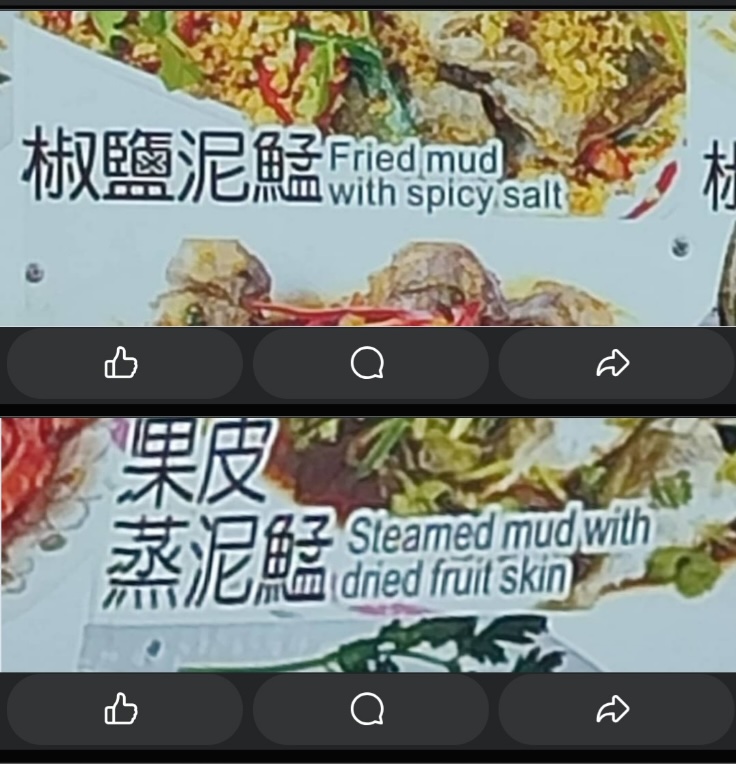Archive for Lexicon and lexicography
March 25, 2025 @ 8:50 am· Filed by Victor Mair under Dictionaries, Language and science, Lexicon and lexicography, Translation, Vocabulary
[This is a guest post by Conal Boyce]
Exactly what had become ‘visualizable’ according to Heisenberg in 1927,
and whence the term ‘Blurriness Relation’ in lieu of Uncertainty Principle?
As backdrop for the physics concepts and associated German vocabulary to be explored in a moment, here is a story I call “Quadrille Dance & Shotgun Wedding”:
1925. Heeding the lesson of Niels Bohr’s ill‑fated orbital theory (1913‑1918), Heisenberg is wary of developing any visual model; he wants to “get rid of the waves in any form.” Accordingly, with Max Born and Pascual Jordan, he sets forth his matrix‑mechanics formulation of quantum theory.
Read the rest of this entry »
Permalink
March 11, 2025 @ 12:23 pm· Filed by Victor Mair under Lexicon and lexicography, Translation
[This is a guest post by Hiroshi Kumamoto]
The Last Words of Helmut Humbach (1921-2017)
1
When an eminent classicist, the late Martin L. West published The Hymns of Zoroaster: A New Translation of the Most Ancient Sacred Texts of Iran, London: Tauris, 2010, Desmond Durkin-Meisterernst wrote (Review in the Journal of the Royal Asiatic Society, 2011, p. 379),"This book (…) comes as something of a surprise, since scholars of the difficult texts in Old Avestan, the oldest known texts in Old Iranian, do not usually emerge out of the blue". Now another surprise is brought by Heindio Uesugi, who edited Old Avestan Dictionary, Tokyo : Research Institute for Languages and Cultures of Asia and Africa (ILCAA), 2024 [became available in Feb. 2025] (XXVIII, 404 + VI, 116 pages). Although Adam Alvah Catt at Kyoto University, who is credited as editorial supervisor, is known from his works in Indo-Iranian and Tocharian linguistics, the name of the editor has been totally unknown in the field in Iranian linguistics.
Read the rest of this entry »
Permalink
February 25, 2025 @ 9:14 am· Filed by Victor Mair under Language and biology, Language and food, Lexicon and lexicography, Lost in translation
From a Hong Kong restaurant:

Read the rest of this entry »
Permalink
February 21, 2025 @ 10:08 am· Filed by Victor Mair under Language reform, Lexicon and lexicography, Signs
Poster on a Tokyo subway, courtesy of Sanping Chen:

Read the rest of this entry »
Permalink
February 6, 2025 @ 8:27 pm· Filed by Victor Mair under Announcements, Dictionaries, Lexicon and lexicography, Vernacular
Read the rest of this entry »
Permalink
February 3, 2025 @ 9:43 am· Filed by Victor Mair under Language and philosophy, Language and politics, Lexicon and lexicography, Translation
Two colleagues noticed that the PRC government often rebukes other countries for lacking sincerity, and they asked me if Chinese had a different understanding of sincerity that permitted / encouraged them to do so. "Sincerity" is so front and center in Chinese negotiations with other nations that one soon comes to realize, if you want smooth relations with the PRC, you must needs demonstrate to the Chinese representatives that you are utterly sincere, i.e., that you are willing to do exactly what they want you to do. Anything less opens you to the charge of being insincere.
My colleagues asked me if there is something special about the Chinese conception of sincerity, i.e., does it have special Chinese characteristics" (jùyǒu Zhòngguó tèsè 具有中国特色)? Just as it is an article of faith for the CCP that socialism in China comes with special characteristics (Zhōngguó tèsè shèhuì zhǔyì 中国特色社会主义).
Read the rest of this entry »
Permalink
January 21, 2025 @ 9:31 am· Filed by Victor Mair under Borrowing, Dialects, Lexicon and lexicography, Translation
[I wrote this piece more than a year and a half ago, but neglected to post it because I was in the midst of a long run. Nonetheless, it's still relevant and interesting, so I'm going ahead to post it now. Since I was able to revise some small points and we garnered several interesting new comments, it was worth a second throw.]
"Linguists have identified a new English dialect that’s emerging in South Florida", by Phillip M. Carter in The Conversation (6/12/23)
Beginning sentences:
“We got down from the car and went inside.”
“I made the line to pay for groceries.”
“He made a party to celebrate his son’s birthday.”
These phrases might sound off to the ears of most English-speaking Americans.
In Miami, however, they’ve become part of the local parlance.
According to my recently published research, these expressions – along with a host of others – form part of a new dialect taking shape in South Florida.
This language variety came about through sustained contact between Spanish and English speakers, particularly when speakers translated directly from Spanish.
Read the rest of this entry »
Permalink
January 13, 2025 @ 7:34 am· Filed by Victor Mair under Borrowing, Etymology, Language and food, Lexicon and lexicography
I encouraged Nathan Hopson to see the last sentence of the second comment here, "Ramen Lo Mein lou1 min6" (1/9/25), which reads: "We need Nathan Hopson / other Japanese lexicologists…".
Nathan replied with this guest post:
Ha! That's very flattering.
I can't claim to have a definitive answer to this, but Wikipedia seems to agree with my assumption — which also harkens back to our previous email about katakana + body lotion — that the contemporary prevalence of ラーメン as the preferred name and orthography for these noodles was fixed in place by the release of the first instant ramen in 1958, Nissin's "Chicken Ramen " (チキンラーメン) and all the products that followed.
Read the rest of this entry »
Permalink
January 12, 2025 @ 11:47 am· Filed by Victor Mair under Borrowing, Etymology, Language and entertainment, Language and food, Language and music, Lexicon and lexicography
"Oxford English Dictionary adds seven new Korean words including ‘dalgona’ and ‘tteokbokki’: This is the first time since September 2021 that the dictionary has added new Korean words"
Shahana Yasmin, The Independent (1/7/25)
Korean has accepted many English words into its vocabulary, including "hotdog" (except in the north, where it is forbidden). Now, with Korean culture and economy booming globally, it is not surprising that Korean language will be spreading too.
…According to the OED’s website on Tuesday, the words “noraebang,” “hyung,” “jjigae,” “tteokbokki” and “pansori” were also added in the December update.
…Dalgona, which entered the pop culture lexicon with the release of Netflix’s hit show Squid Game in 2021, is defined as a “Korean confection made by adding baking soda to melted sugar, typically sold by street vendors in the form of a flat disc with a simple shape such as a heart, star, etc., carved on its surface”.
Read the rest of this entry »
Permalink
October 1, 2024 @ 5:38 am· Filed by Victor Mair under Etymology, Language and travel, Lexicon and lexicography
These are two premodern words for Chinese watercraft that have worked their way into the English lexicon. Their etymology, however, is not as straightforward as it might seem.
"Language Matters | Where did English get the words ‘sampan’ and ‘junk’ from? Probably Cantonese and Javanese: Scholars are split on the roots of ‘sampan’ and ‘junk’, with some pointing to Chinese and others to Old Malay and Javanese respectively", by Lisa Lim, SCMP (9/30/24)
Sampans – typically small, light, wooden boats with a relatively flat bottom, propelled by a pole, oars, or a single long stern sculling oar – have a long history in East and Southeast Asian coastal and river waters.
Usually open, with a shelter aft, they were – and still are – used as a means of transporting passengers and goods over short distances; fishing; or to get to larger vessels out at sea. They also constituted homes for sea-dwelling communities, including the Tanka or Séuiseuhngyàn “people born on or of the water”, of coastal southern China and Hong Kong and Macau.
Read the rest of this entry »
Permalink
September 17, 2024 @ 8:00 am· Filed by Victor Mair under AI Hype, Artificial intelligence, Bilingualism, Borrowing, Lexicon and lexicography, Mixed lanuage, Neologisms
An eminent Chinese historian just sent these two sentences to me:
Yǒurén shuō AI zhǐ néng jìsuàn, ér rénlèi néng suànjì. Yīncǐ AI yīdìng bùshì rénlèi duìshǒ
有人說AI只能計算,而人類能算計。因此AI一定不是人類對手。
"Some people say that AI can only calculate, while humans can compute. Therefore, AI must not be a match for humans".
Google Translate, Baidu Fanyi, and Bing Translate all render both jìsuàn 計算 and suànjì 算計 as "calculate". Only DeepL differentiates the two by translating the latter as "do math".
Read the rest of this entry »
Permalink
August 18, 2024 @ 6:04 pm· Filed by Victor Mair under Announcements, Language and art, Language and philosophy, Language and religion, Lexicon and lexicography, Vernacular
Sino-Platonic Papers is pleased to announce the publication of its three-hundred-and-fifty-third issue: "Speaking and Writing: Studies in Vernacular Aspects of Middle Period Chinese Culture" (pdf), edited by Victor H. Mair (August, 2024).
Foreword
The three papers in this collection were written for my seminar on Middle Vernacular Sinitic (MVS). They cover a wide variety of topics, from epistolary style to social mores, to philosophy and religion. They reveal how a vernacular ethos informs the thought and life of men and women from different social classes and distinguishes them from those who adhere to a more strictly classical outlook. Although they are on quite dissimilar subjects, this trio of papers harmonize in their delineation of the implications of vernacularity for belief and perception. Taken together, they compel one to consider seriously what causes some people to tilt more to the vernacular side and others to cling to classicism. While the authors of these papers do not aim to arrive at a common conclusion on the meaning of the vernacular-classical divide, the readers who probe beneath the surface of all three papers will undoubtedly find facets that refract and reflect themes that bind them into a unified body of inquiry.
Read the rest of this entry »
Permalink

